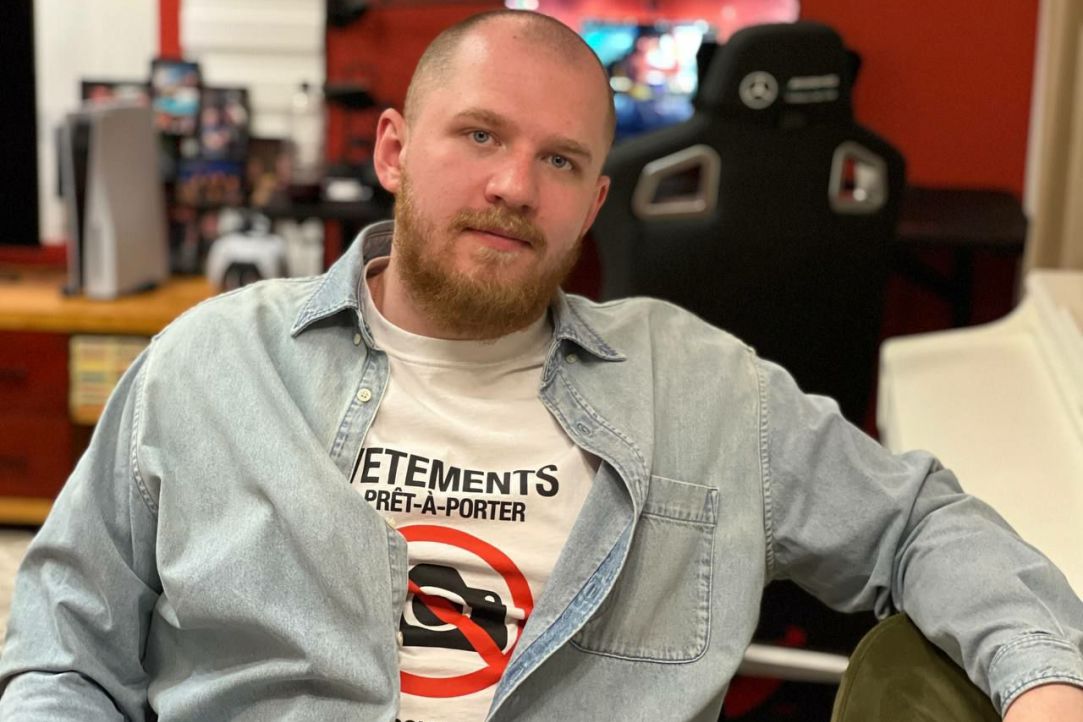Computer vision with our hearts
Alexey Berezkin is a second–year master's student of the educational program "Master of Computer Vision", created in partnership with leading companies in the field of computer vision solutions Intel, Harman, Huawei, Xperience.ai, RoundU, Itseez3D. In an interview with the portal service, Alexey noted disciplines useful for professional growth and shared his impressions about the transition to a new educational platform.

Alexey Berezkin graduated from the Bachelor's degree of the Faculty of Computer Software and Information Technology of Bauman Moscow State Technical University and the Federal Polytechnic School of Lausanne EPFL. In 2021, he entered the HSE Nizhny Novgorod for a new online master's program "Master of Computer Vision".
Alexey told the portal service what criteria Alexey was guided by when choosing a program, what seemed difficult in the first three modules of training and what kind of dream master's education helps to realize.
Alexey, why did you choose the Master of Computer Vision program?
I have been interested in the field of Computer Vision for a long time, I was very lucky to get a job right away in my specialty — I work on projects directly related to computer vision: classification of aircraft and birds in real-time photographs. More recently, I had another project indirectly suitable for Computer Vision: I was developing an application that detects a person's fall from the sensors in the phone. The main difficulty was that there are sensors of different sensitivity on different phones, so training a neural network to classify real falls became a very non-trivial task.
Relevance, by the way, also played a role in the choice – the direction of computer vision is now actively developing, it has a huge potential. And of all the educational programs on neural networks available in Russia, it was the program of the Nizhny Novgorod HSE, with all the refined educational structure, that seemed to me the most creative.
How was the first year of online Master's degree?
Everything was good and convenient — responsive teachers and administrative staff. If there were questions about deadlines or certification, they were quickly resolved.
In general, I like the program, it seems quite balanced. A couple of times, however, I had doubts about the practical applicability of some of the knowledge that we were taught. For example, in my subjective opinion, there was a very voluminous theoretical block in the course on computer architecture, a lot of emphasis was placed on the history of development. However, perhaps in the future I will be able to apply this knowledge, I just haven't encountered anything like this yet.
Which of the courses presented on the program seemed to you the most difficult? The most useful?
The initial course in C++ was difficult. I didn't immediately understand why I chose this programming language, but over time, with all the cumbersome structure, I began to see its advantages.
The most useful course for me was data analysis. At the end, we received ready-made data easily interpreted by the neural network, which can be immediately put into operation. A neural network is a rather capricious thing. Real data must be specially encoded for their processing, there are different methods for this, for example, one-hot encoding. Most of these methods have been explained.
Also, perhaps, the initial course of mathematics also seemed very useful — this is a great start for those who have not previously encountered matrix calculations. Well–formed tasks - performing them, you understand how it all works, as a result, you get a very good performance.
How was the transition from one platform to another?
In fact, any, even the most ideal platform, is just a tool. And the new SMARTLMS Tower platform turned out to be a fairly convenient tool, the smooth operation of which is provided by the training team, and there are no complaints about it at all. Due to the blocking of Coursera, the transition occurred very smoothly. People are always in touch, all questions are solved individually, teachers are always ready to answer any questions. It may make sense to refine the organization of information by sections, but the very existence of such a platform in Russia and a fairly quick transition to it after the suspension of Coursera is very cool.
It also turned out to be a very cool thing – forums, they were also on Coursera, but I appreciated their convenience only on SMARTLMS. I manage to study the course materials with some delay, and here, even if you are a little late, you can see all the material and answers to questions that other students had. In fact, such a small ecosystem.
You will soon have an online defense of the project course in front of the professional IT community. What project will you present?
I was lucky with the theme of the project. Each of the students was given a model to present as a working project and make a web application to demonstrate its work. I will present a model of the YOLOV5 family — this is a neural network for identifying different objects in one photo. And my luck is that such a model is found in one of my work projects, so it's doubly interesting for me.
Do you have any dream that you could realize after completing your master's degree?
I really like what I do - I've always wanted to combine programming and my mathematical background. Admission to the master's program for me is not so much a necessity as following the call of my heart, because I really want to just develop in this direction.
Date
22 June
2022
Topics

